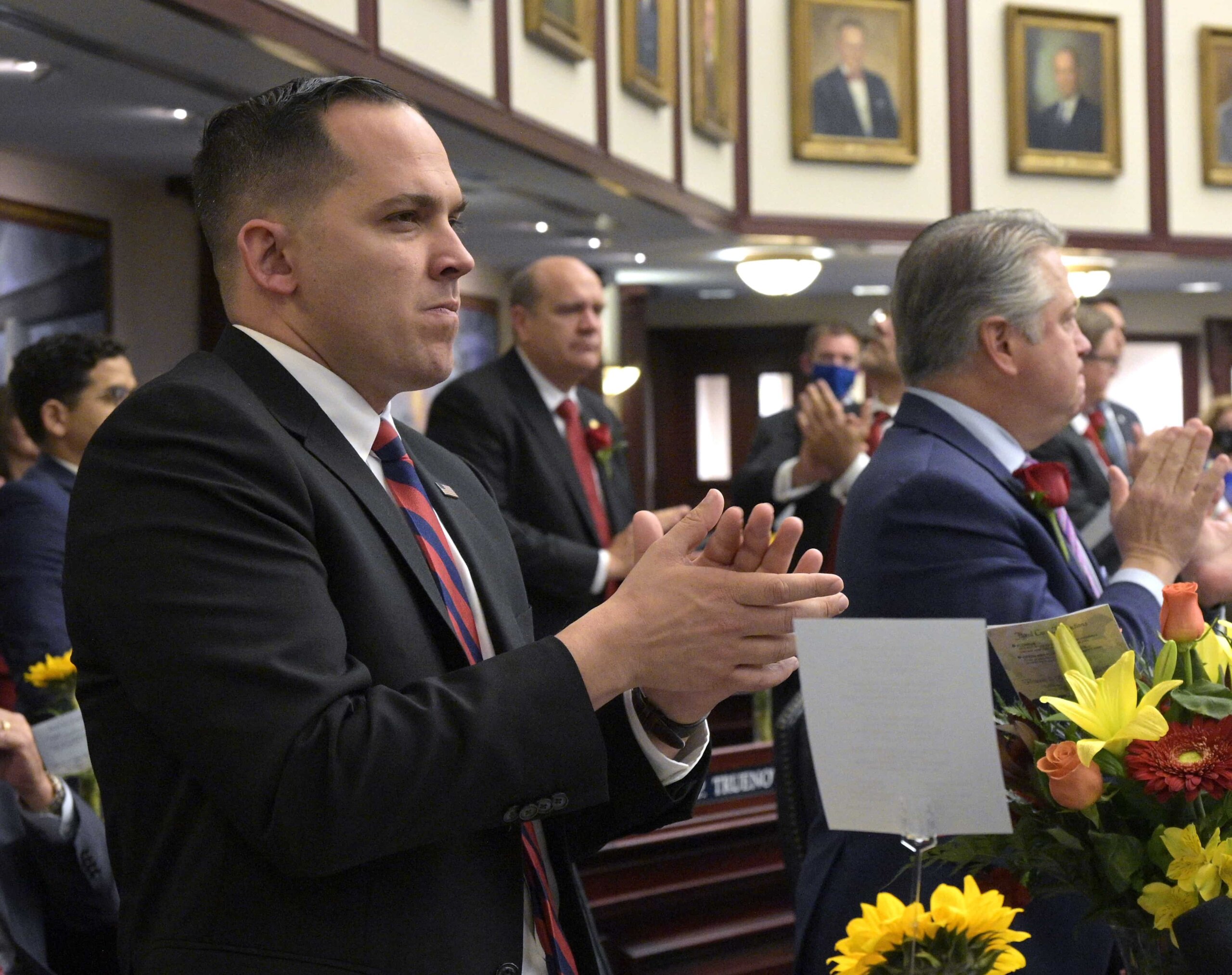As state legislatures continue to target trans youths’ access to gender-affirming healthcare and sports across the U.S. this Pride Month, some lawmakers have now set their sights on a new target: kids at drag shows.
Lawmakers in both Florida and Texas have announced within the past week their intent to introduce legislation that would ban minors from attending drag events. While the actual bills have yet to be introduced—neither legislature is currently in session—the announcements have nevertheless provoked significant outcry.
Florida Republican Anthony Sabatini tweeted on June 6 his intent to introduce legislation to terminate parental rights and charge with a felony any parent who brings their child to a drag show—which he referred to as “drag sex shows.”
In the tweet, he referenced an upcoming Pride celebration in West Palm Beach, which included a drag show for kids, put on by the organization Pride on the Block. (This is not the only threat that the organization has faced in recent days—earlier this week, a teenager was arrested in Ontario after threatening to commit a mass shooting at the organization’s block party.)
Florida Gov. Ron DeSantis has backed up Sabatini’s proposal, stating in a Wednesday press conference that he intended to explore whether existing child abuse legislation could be used to fast-track a ban.
And last week, Texas Rep. Bryan Slaton released a press release expressing the intent to introduce a bill during the next legislative session that would “ban drag shows in the presence of minors” in Texas.
“The events of this past weekend were horrifying and show a disturbing trend in which perverted adults are obsessed with sexualizing young children,” Slaton wrote in the statement, referencing a family-friendly drag show at Dallas gay bar Mr. Misster, which drew protests the previous weekend. During the event, kids were allowed to dance with performers on stage. Protestors expressed anger outside the event, with some holding posters reading “Stop grooming the kids.”
In a follow-up tweet, Slaton claimed that he had received support from Republican lawmakers in the Texas legislature and Congress. On Twitter, right-wing lawmakers, including Georgia Rep. Majorie Taylor Greene and Colorado’s Lauren Boebert, echoed the sentiment.
LGBTQ2S+ advocates were quick to criticize Sabatini and Slaton, pointing out that it’s a slippery slope from banning youth at drag performances to criminalizing any kind of gender deviance altogether—and that there’s a long history of criminalization that backs this up.
GLAAD president & CEO Sarah Kate Ellis noted in a statement that there are myriad “real” threats to youth that these lawmakers are neglecting to address—including an ongoing suicidality crisis among LGBTQ2S+ youth, as well as gun violence and “baseless legislation that bans life-saving healthcare.” She added, “Let’s focus on actual problems facing students, and hold lawmakers accountable to keeping all kids safe from real harm.”
Youth advocates in the states—which have seen particularly high numbers of anti-trans bills introduced over the past two years—spoke out as well. Maxx Fenning, co-founder of Florida youth-led LGBTQ2S+ advocacy organization PRISM, called the move a “shameful, unfiltered display of homophobia that has become increasingly normalized in Florida…. We’re committed to making these spaces more accessible, not harder to attend.”
The legislative proposals were also criticized by many well-known drag personalities, including Drag Race Season 11 star and Texas native A’Keria C. Davenport, longtime Drag Race judge Michelle Visage and Alyssa Edwards of Drag Race Season 5. Edwards, also a Texas native, pointed out that Slaton has tweeted more about drag than the recent shooting in Uvalde, in which 19 students were gunned down at a Texas elementary school late last month.
Slaton and Sabatini are not the only conservative lawmakers targeting drag artists this Pride season. Last month, a Pride Month event at a U.S. Air Force base in Germany was cancelled after Florida Sen. Marco Rubio referred to drag queen story hours—events in which drag queens read picture books to children—as “sexually charged content.”
In response, Drag Queen Story Hour—a nonprofit organization that helps organize these events—called out “disingenuous” politicians like Rubio, who they said were mounting these attacks and inciting violence as part of a coordinated campaign to legislate LGBTQ2S+ people out of existence.
“Let’s be clear: DQSH provides age-appropriate programming, and we routinely receive praise from parents and educators who are delighted that we offer children safe spaces to express themselves and support one another,” the organization said in a statement. “Any attempt to criminalize our work is rooted in tired homophobic and transphobic hate and misinformation, and we refuse to give in to politicians who are too bigoted and boring to comprehend our vision for a world in which every child can be safe fully expressing who they are.”


 Why you can trust Xtra
Why you can trust Xtra


